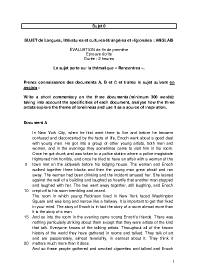Catharsis in Literature
The word catharsis means "cleansing or purification" in Greek. This word was applied to literature by Aristotle to explain how tragedy affects audiences. He believed that a story enables the audience to feel strong emotions in an indirect way and "through pity and fear effecting the proper purgation (catharsis) of these emotions".
Shakespeare's Mastery of Emotional Display
Shakespeare was a master at portraying these extreme displays of emotion. Among his tragic characters of course Romeo and Juliet, the "star-crossed lovers", the young Hamlet, or Othello, tormented by jealousy, come to mind.
British Romantic Poetry and Emotion
The British pride themselves on their ability to keep a stiff upper lip no matter what happens and yet their romantic poets, such as Wordsworth (1770-1850), are known for their outpouring of emotions and their belief in the power of the imagination over reason. Like most romantic poets the natural world was a constant source of wonder and inspiration for Wordsworth. One of his most famous poems I Wandered Lonely as a Cloud bears testimony to the poet's relationship with nature and the emotions he experiences then.
Love as Poetic Inspiration
Love is another source of inspiration for romantic poets. The English romantic poet John Keats (1795-1821) created "poetry that sought its wonder in the desires and sufferings of the human heart". One of his most famous poems Bright Star is thought to have been inspired by Fanny Brawne, a young woman with whom he was in love. The film Bright Star (2009) by Jane Campion depicts this relationship. Andrew Motion, who wrote a biography of Keats praises Jane Campion for having aptly conveyed "the pathos" of the love affair between the poet and Fanny. Another critic also describes the film as "a portrait of love and loss".
Modern Emotional Poetry
Twentieth century American poet Sylvia Plath is also famous for the intense emotions expressed in her poetry. In the poem Daddy, written a few months before she committed suicide, she writes about her father's death and her own.




